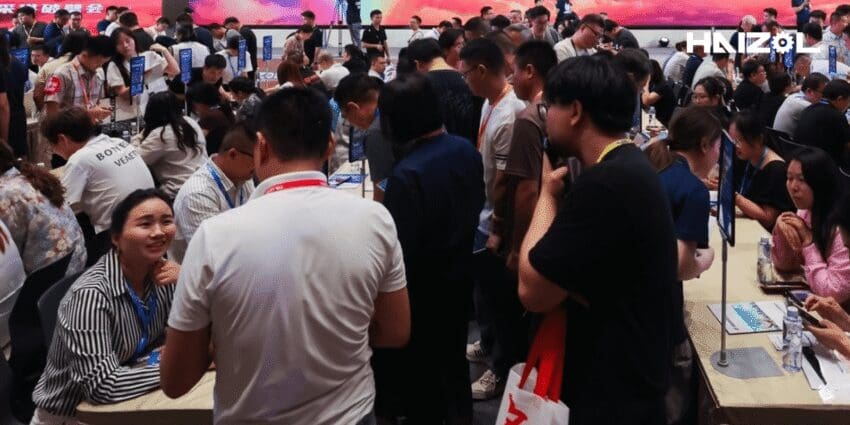
Why Global Procurement Shifts in Custom Parts Matter to UK SMEs
For British manufacturers, supply chains are no longer just a back-office concern. Over the past five years, rising costs, supply delays, and geopolitical uncertainty have pushed sourcing decisions onto the boardroom agenda.
Many UK SMEs, whether in automotive components, medical devices, or specialist machinery, depend on custom parts and components sourced from overseas.
New findings from the 2025 Custom Parts and Components Sourcing Survey, released at Haizol’s Supplier Discovery and Sourcing Breakthrough Conference in Shanghai, offer insight into how sourcing behaviour is evolving worldwide. The results point to a sector in transition. One where speed, flexibility, and visibility are redefining procurement.
How the Survey Was Conducted
The 2025 survey drew responses from more than 220 procurement representatives and 1,054 delegates from custom manufacturing companies during the Shanghai conference. Participants included companies across over 60 sub-sectors, offering both quantitative and qualitative insights into sourcing practices.
From Bulk Orders to Short Runs
More than half of surveyed companies reported procurement budgets under ¥10 million (≈ £1.1m), highlighting a decisive move away from bulk orders toward shorter, more varied production runs.
For UK SMEs, this trend offers a potential advantage. Smaller firms that once struggled to compete with bulk buyers may now find suppliers increasingly open to low-volume, fast-turnaround projects. This agility can accelerate prototyping, reduce risk, and support product launches without tying up capital in large orders.
Growth Sectors Driving Demand
Robotics, semiconductors, renewable energy, and medical technology accounted for more than half of sourcing demand, with robotics alone representing 11%.
These are precisely the industries where UK SMEs are attempting to establish themselves, either as niche suppliers into global value chains or as innovators developing products that require highly specialised components. The survey confirms that international procurement patterns are moving in step with the very sectors where British firms see their growth potential.
Shifts in Payment Practices
Payment terms are evolving alongside procurement behaviour. The survey found that:
- 43% of transactions now run on 30-day terms,
- 31% are settled through pre-payment or cash,
- and 6% extend to the traditional 90-day cycles once common in cross-border trade.
This represents a marked shift toward faster settlements, reshaping the financial dynamics of international sourcing.
For companies in the UK sourcing custom parts from China, the implications are twofold. On the upside, quicker payments can build stronger relationships with suppliers, signal reliability, and in some cases lead to faster turnaround times. On the downside, shorter cycles place additional strain on cash flow, particularly for companies already managing narrow margins.
Why It Matters for UK SMEs
The survey confirms that procurement is moving into a new era: faster cycles, smaller orders, and closer alignment with emerging industries. For companies, the implications are immediate.
- Access to smaller runs means British firms can engage suppliers without the burden of large, upfront commitments, a potential boost for rapid prototyping costs and rapid product launches.
- Tighter payment terms create opportunities to strengthen supplier trust and accelerate delivery, but also demand stronger cash flow planning.
- Rising demand from high-growth industries is pushing more Chinese factories to build specialist capabilities, widening the pool of suppliers able to deliver complex, custom parts.
In short, the global market for custom parts and components is no longer about who can buy the most; it is about who can buy smarter, faster, and with confidence. For UK SMEs, adapting to this reality will be essential to turning supply chains from a point of vulnerability into a source of competitive strength.





